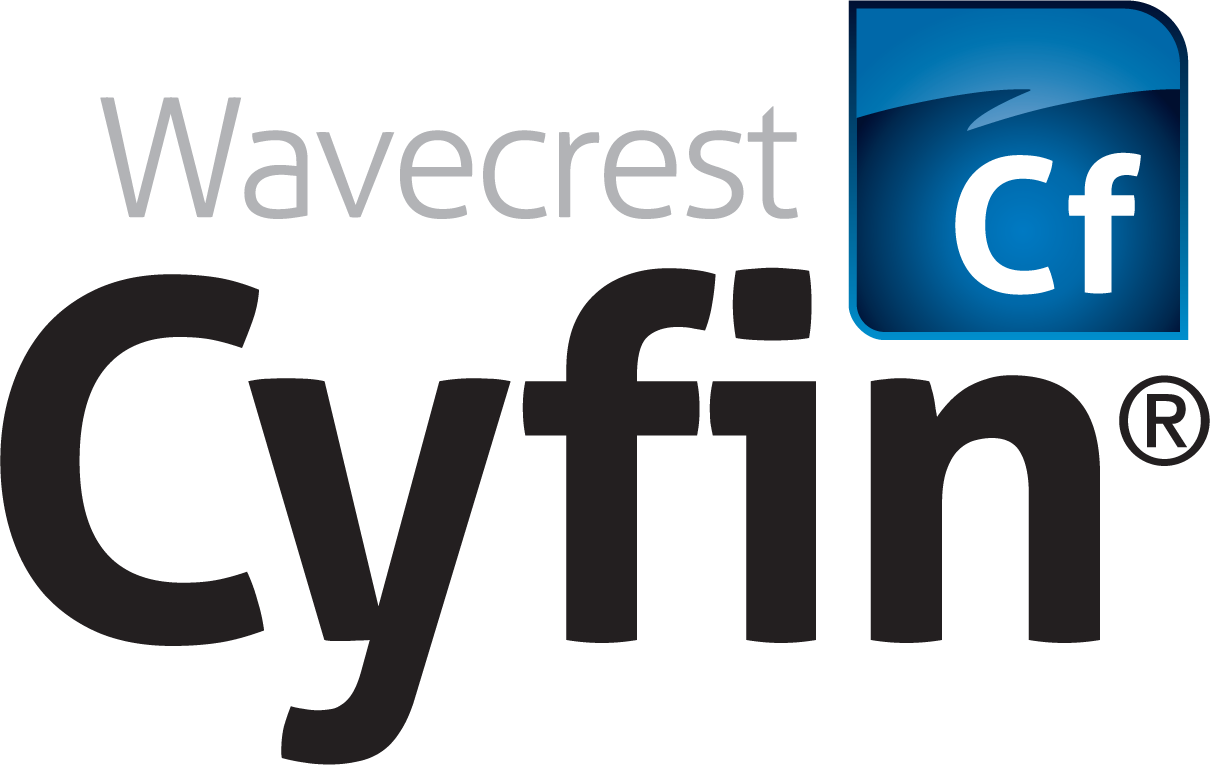In today’s digital workplace, organizations face mounting challenges in managing employee internet usage while maintaining productivity, security, and compliance. The explosion of web traffic, combined with increasingly sophisticated security threats and the need for detailed usage analytics, has created a perfect storm that requires specialized solutions. Enter Cyfin, Wavecrest Computing’s flagship web monitoring platform that transforms the complex landscape of network traffic analysis into clear, actionable intelligence for IT administrators and management teams.
The Challenge of Modern Web Traffic Analysis
Enterprise networks generate enormous volumes of web traffic data daily, creating what industry experts call “noise” in traditional monitoring systems. Standard firewall logs and basic reporting tools often overwhelm administrators with raw data that lacks context, categorization, and meaningful insights. This information overload makes it nearly impossible to identify genuine security threats, policy violations, or productivity issues without dedicating substantial human resources to manual analysis.
The traditional approach to web monitoring often falls short when organizations need to conduct thorough investigations or generate executive-level reports. Raw firewall data lacks the granular detail and contextual information necessary for effective decision-making, while basic reporting tools struggle to filter out irrelevant information and focus on actionable insights.
Cyfin’s Comprehensive Approach to Web Activity Monitoring
Cyfin addresses these challenges head-on by serving as both a powerful Firewall Log Analysis Tool and a sophisticated reporting platform designed specifically for enterprise environments. Unlike bolt-on solutions that attempt to add web monitoring capabilities to existing security platforms, Cyfin was purpose-built from the ground up to excel at internet usage analysis and reporting.
The platform’s core strength lies in its ability to transform noisy, cluttered firewall data into clean, categorized, and highly detailed reports that provide immediate value to both technical staff and executive management. By focusing exclusively on web activity monitoring and analysis, Cyfin delivers unmatched accuracy and depth in its reporting capabilities.
Advanced Employee Internet Monitoring Reports
One of Cyfin’s standout features is its comprehensive suite of Employee Internet Monitoring Reports that go far beyond basic usage statistics. These reports provide detailed breakdowns of user activity across multiple dimensions, including time-based analysis, site categorization, bandwidth consumption, and productivity metrics.
The platform automatically categorizes websites into dozens of predefined categories, eliminating the guesswork involved in interpreting raw URLs and domain names. This categorization system enables administrators to quickly identify productivity-impacting activities, security risks, and policy violations without manually reviewing thousands of individual web requests.
Management teams particularly value Cyfin’s executive-level reporting capabilities, which present complex web usage data in clear, professional formats suitable for boardroom presentations. These reports can highlight trends, identify outliers, and provide the strategic insights necessary for informed policy decisions and resource allocation.
Specialized Employee Web Activity Investigation Capabilities
When organizations need to conduct detailed investigations into specific incidents or user behaviors, Cyfin’s Employee Web Activity Investigation features provide the forensic-level detail required for thorough analysis. The platform maintains comprehensive logs of all web activities, enabling investigators to reconstruct user sessions, identify patterns of behavior, and generate detailed audit trails that meet legal and compliance requirements.
The investigation capabilities extend beyond simple URL logging to include detailed timing information, data transfer volumes, and contextual details that help investigators understand the full scope of user activities. This level of detail proves invaluable when organizations need to address policy violations, security incidents, or productivity concerns with specific employees.
Cyfin’s investigation tools also support complex queries and filtering options, allowing administrators to quickly isolate relevant activities from large datasets. Whether investigating a single user’s behavior over time or analyzing patterns across multiple users and departments, the platform provides the flexibility and precision required for effective investigation workflows.
Bandwidth Analysis and Performance Optimization
Modern organizations constantly struggle with bandwidth management as employees increasingly rely on web-based applications, streaming services, and cloud platforms for both business and personal activities. Cyfin’s Bandwidth Usage Reports for Employees provide unprecedented visibility into how network resources are being consumed across the organization.
These reports break down bandwidth usage by user, department, application type, and time period, enabling IT administrators to identify bandwidth-intensive activities and optimize network performance accordingly. The platform’s detailed analytics help organizations understand whether their bandwidth investments are being used effectively or if certain activities are consuming disproportionate resources.
The bandwidth reporting capabilities have proven particularly valuable for organizations looking to optimize their network investments. Multiple customer testimonials highlight significant bandwidth savings achieved through Cyfin’s detailed reporting, with one organization reporting a 42% reduction in bandwidth usage within the first month of implementation.
User Behavior Analytics from Firewall Logs
Cyfin’s sophisticated User Behavior Analytics from Firewall Logs capabilities represent a significant advancement over traditional log analysis approaches. Rather than simply parsing firewall data for basic statistics, the platform employs advanced analytics to identify patterns, trends, and anomalies in user behavior that might indicate security risks, policy violations, or productivity issues.
The behavioral analytics engine examines multiple dimensions of user activity, including access patterns, time-based behaviors, site categories visited, and data transfer patterns. This comprehensive analysis enables the platform to identify subtle behavioral changes that might indicate compromised accounts, insider threats, or other security concerns that would be difficult to detect through manual analysis.
The platform’s machine learning capabilities continue to evolve, becoming more effective at identifying normal versus abnormal behavior patterns as it processes more organizational data. This adaptive approach ensures that the analytics become increasingly accurate and relevant to each organization’s specific usage patterns and risk profiles.
Clean, Noise-Free Reporting
One of Cyfin’s most appreciated features is its ability to generate Noise-Free Employee Web Reports that focus on meaningful information while filtering out irrelevant data. Traditional web monitoring solutions often overwhelm administrators with voluminous reports filled with routine system activities, automated updates, and other background processes that obscure genuine user activities.
Cyfin’s intelligent filtering algorithms distinguish between legitimate user-initiated activities and automated system processes, ensuring that reports focus on the information that actually matters for decision-making purposes. This noise reduction capability dramatically improves the efficiency of report review processes while ensuring that important activities are never overlooked.
The clean reporting approach extends to the platform’s user interface design, which presents complex information in intuitive formats that don’t require extensive technical knowledge to interpret. This accessibility ensures that both technical staff and business managers can effectively utilize Cyfin’s reporting capabilities without requiring extensive training or support.
Integration and Scalability
Cyfin’s architecture was designed to integrate seamlessly with existing network infrastructure, supporting a wide variety of firewalls, proxy servers, and security appliances. This compatibility ensures that organizations can implement Cyfin without requiring significant changes to their existing network configurations or security policies.
The platform’s scalability has been proven in enterprise environments serving thousands of users across multiple locations. Customer testimonials consistently highlight Cyfin’s ability to handle large-scale deployments while maintaining performance and accuracy standards. The solution scales effectively from small businesses to large enterprises with complex, distributed network architectures.
Integration capabilities extend beyond simple data collection to include automated report distribution, API access for custom integrations, and support for various authentication systems. This flexibility ensures that Cyfin can adapt to diverse organizational requirements and existing workflow processes.
Real-World Impact and ROI
Organizations implementing Cyfin consistently report significant returns on investment through improved productivity, reduced legal liability, and optimized network resource utilization. The platform’s detailed reporting capabilities enable organizations to identify and address productivity issues before they become significant problems, while its security-focused features help prevent data breaches and policy violations.
The forensic-quality reporting provided by Cyfin has proven invaluable for organizations dealing with HR issues, legal compliance requirements, and security investigations. The platform’s ability to provide detailed audit trails and comprehensive user activity reports helps organizations respond effectively to legal discovery requests and regulatory compliance requirements.
Multiple customer testimonials highlight bandwidth optimization benefits, with organizations achieving substantial cost savings by identifying and addressing inefficient bandwidth usage patterns. These savings often result in payback periods of less than six months, making Cyfin a highly cost-effective investment for organizations of all sizes.
Conclusion
Cyfin represents a mature, purpose-built solution for organizations serious about web activity monitoring and analysis. Unlike generic monitoring tools that attempt to address web usage as a secondary feature, Cyfin’s focused approach delivers unmatched accuracy, detail, and usability in its reporting capabilities.
The platform’s combination of sophisticated analytics, clean reporting, and comprehensive investigation capabilities makes it an essential tool for organizations looking to optimize productivity, ensure security, and maintain compliance in today’s complex digital environment. With proven scalability, extensive integration options, and a track record of delivering measurable ROI, Cyfin stands as the definitive solution for enterprise web activity monitoring and investigation needs.
Whether addressing immediate security concerns, optimizing network performance, or establishing comprehensive web usage policies, Cyfin provides the detailed insights and robust reporting capabilities that modern organizations require to make informed decisions about their digital infrastructure and employee productivity strategies.
For more detailed information about Cyfin’s investigation capabilities and to explore how this powerful web monitoring solution can benefit your organization, visit Cyfin’s investigation features page.



